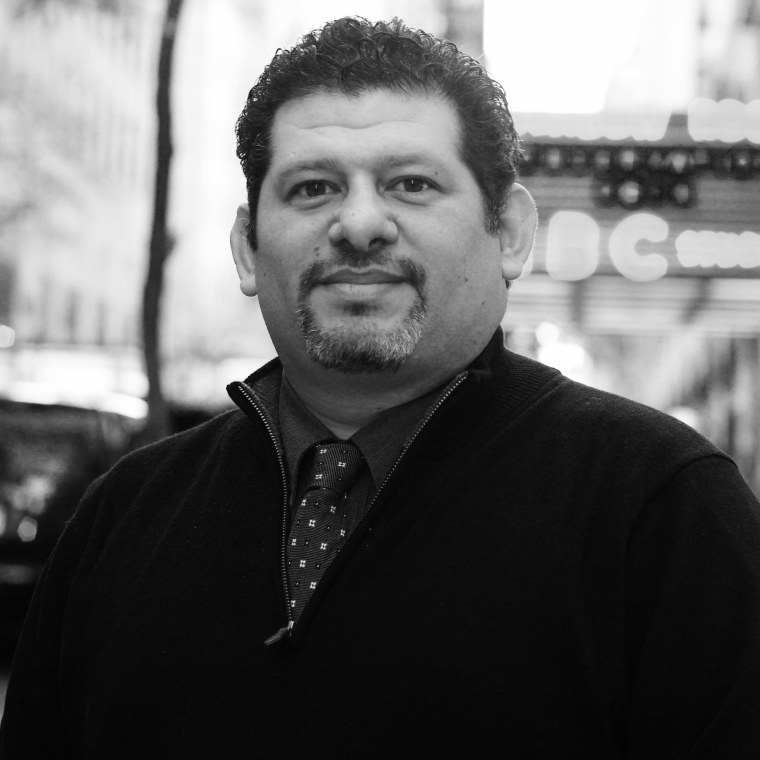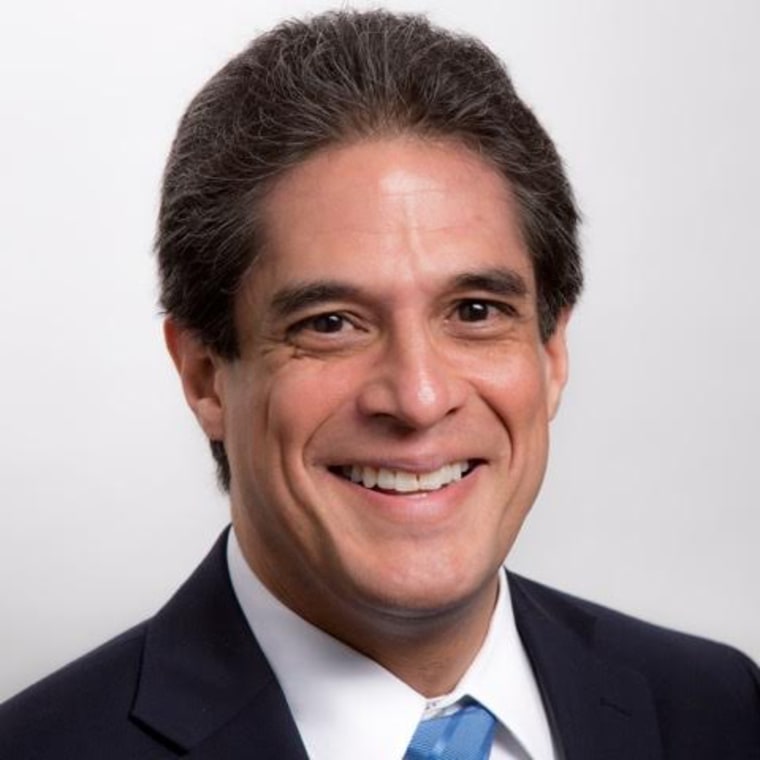Who scored points, who had some disappointing moments, and did the Republican candidates make a good case to prospective Latino voters? With the longest and most substantive discussion on immigration among both Republicans and Democrats thus far, we asked a group of Latino/as to give us their opinions of last night's GOP debate.
Jeb Bush Finally Found His Footing, but is it Too Little, Too Late?

Perhaps the most refreshing Republican debate of the entire season, a Trumpless stage gave the candidates space to have a much more substantive debate than we have seen so far.
The planets seemed to align themselves for Jeb Bush last night. A career politician, Jeb was always the least comfortable on stage with the presence of an unpredictable Donald Trump. Trump’s absence also left the more ideological statements by Marco Rubio and Ted Cruz, which they had grown used to relying on, out of place and disconnected from what one might expect in a substantive political debate.
Jeb seemed to relish the night, and even took some joy in the discussion over immigration, which was an awkward sequence of Ted Cruz and Marco Rubio accusing each other of supporting amnesty while at the same time defending their previous positions on some pathway to legalization. Bush even defended a pathway to citizenship as reasonable, pragmatic, and humane. Perhaps in recognition of his low support in the polls, he no longer felt compelled to appeal to the more conservative factions of the party, and instead chose to stand up for his record. Perhaps it is too late for Bush, with the damage done over the last six months, but my sense is the longer he is able to hang on, the stronger he will get.
The clear winner last night, however, was Megyn Kelly. She wielded control over the candidates and her introduction to the immigration debate with a video of Cruz and Rubio supporting some pathway to legalization for undocumented immigrants was golden. Both Cruz and Rubio have tried to have it both ways on the immigration issue, supporting some pathway to legalization, while at the same time making hardline statements against “amnesty”. Of course, the two stances are different, but both candidates have relied on slights of hand depending on their audience to get away from taking a solid stance. Kelly’s video laid it out for them and neither Cruz nor Rubio were able to wiggle out of their clear history of flip-flopping on the issue. Kudos to Megyn Kelly.
It was also nice to get a question on the Puerto Rico crisis, a grave concern for our Puerto Rican brothers and sisters here on the mainland and on the island. While this question was only addressed by Jeb Bush, his answer seemed to support some Congressional solution, despite his non-support for default on the debt that is saddling Puerto Rico. Still, he supported self-determination, and displayed displeasure with the situation. As the former governor of Florida, with a sizable and growing Puerto Rican population, Bush seemed empathetic and informed in his discussion on the issue.
It’s a shame Donald Trump hijacked the Republican Party over the last six months. The only beneficiary to Trump has been the Democrats. The last Republican debate clearly had the candidates shaken, with the frontrunners having conceded to the tactic of trying to out-Trump Donald Trump. Had this been the last of a series of debates with greater substance, the voters would have been well-served. Instead, the voters saw what was essentially the first real Republican debate last night, and that is unfortunate for our democracy.
Without Trump, It Was an Off-Night for Ted Cruz and Marco Rubio

The show must go on – and it did. With GOP frontrunner Donald Trump boycotting the Fox News debate last night, viewers got a chance to see what the race for the Republican nomination might look like without his blustery, bullying presence. We now know that a more civil, issue-focused forum is certainly possible, as long as The Donald is off site (in this case, at a hastily-arranged veterans’ event).
Without Trump at center stage, however, new dynamics emerged. Two of the current frontrunners, Sen. Ted Cruz (R-Texas) and Marco Rubio (R-Fla.) seemed to have an off night, while several of the lower-polling candidates turned in solid performances.
The low-polling candidates were actually the winners of the evening. Perhaps without Trump sucking up all of the air in the room, they were able to relax and present themselves in an authentic, positive light. Jeb Bush was a stronger, more confident presence, calling out Rubio for bailing on the “Gang of Eight” bill and defending his own support for legal status for the undocumented. Rand Paul showed strength too, needling Rubio and Cruz, and scoring points on abortion and racial profiling. John Kasich’s closing statement hit exactly the right inclusive, aspirational notes.
The losers last night were Cruz and Rubio, if for no other reason than that Fox played two separate montages of their shifting immigration positions. No matter how skilled these gentlemen are at debating, the visual evidence was devastating. Cruz and Rubio then proceeded to go after each other, pointing fingers and hurling accusations related to support for “amnesty.” Voters and viewers may not recall their current positions on a path to citizenship or legalization for undocumented immigrants, but the takeaway was strong: Both candidates have been immigration “flop-floppers.”
Cruz tangled with moderator Chris Wallace over questions that he felt were attacking him, and lost; his half-joke of a threat that he (like Trump) might leave the stage fell flat. Cruz also repeated the lie that the Affordable Care Act has been a job-killer – an idea not supported by studies or statistics.
Absent from the debate agenda: any discussion of the growing threat of the Zika virus, the ongoing Oregon standoff, college affordability, or voting rights.
To their credit, the Fox News moderators asked probing questions, on everything from electability to the “Bridgegate” scandal to the water crisis in Flint, Michigan. Yet time and again, they allowed candidates to acknowledge their query and then immediately pivot onto a separate topic.
And while it was a good move to feature questions from popular YouTubers, it was noticeable that all of the minorities selected asked questions that pertained to their ethnicity. Thus we saw a young African-American ask about Ferguson and police accountability, a Latina ask about anti-immigrant rhetoric, and a Muslim ask about Islamophobia. In the future, it might be nice to see a Latina ask about education (a top concern of Hispanics), or an African-American citizen voice his concerns about the environment. Just saying.
This Debate Finally Highlighted Some of the Nuances Between the Candidates

Tonight’s debate might not have had a lot to add in regard to new information about candidate positions, but the absence of Trump shifted the dynamic. Less time was wasted on hurling irrelevant personal insults and attacking the media (with the exception of a minor Cruz tantrum) and more time was spent on exchanges highlighting some of nuances between candidates. Furthermore, Fox was able to better push the candidates on changed positions, without petulant and bandwagon revolts. The use of clips was particularly effective, and somewhat entertaining, in this endeavor.
Benefitting the most from the absent frontrunner, other than the viewers, was Jeb Bush. Without having to waste his time and energy responding to flippant insults, Bush was at his most eloquent. He could play to his strength and lay out detailed policy positions without constant interruption impeding his stride. This is the most comfortable we’ve seen him, closer to what might have been expected from him in a race not defying so many conventions. For Latinos concerned with reform, Bush seems to remain the Republican most committed to finding a solution that recognizes the humanity as well as the many contributions of immigrants.
Receiving the most speaking time and scrutiny from Fox were Cruz and Rubio. In fact, the most animated exchanges were between Cruz and Rubio, Cruz and Fox, and Rubio and Fox, not necessarily in that order. Here, Rubio and Cruz tried to deflect challenges to their authenticity on the issue of immigration. Both also continued their tirades against radical Islam in an effort to out-hawk each other, Rubio with specificity and Cruz with generalities.
Rand Paul continued to distinguish himself from his colleagues to the glee of some very vocal and enthusiastic supporters in the crowd. Despite the assertion that Ted Cruz has inherited Ron Paul’s liberty vote, Paul is still the only one reaching out to libertarian voters. He is the least hawkish of the field and the one most consistently speaking out against government surveillance. As the only person asked about the situation in Ferguson (an unfortunate choice by the moderators), he spoke against people being “fined to death”, the war on drugs, and the need for equal protection under the law. He waffled a little in his response to a question on abortion, stating he both supported to repeal of Roe v. Wade as a means of returning power back to the states on the question of legality, but then also supported a federal “life” bill. His other major departure from libertarianism is his harsh stance on immigration. A lapse in ideology reminiscent of his father’s own nativist approach.
Getting the least speaking time tonight were John Kasich and Ben Carson. For Carson, his entire closing statement was the Preamble to the Constitution. This seemed in line with how much substance he really has had to offer in these debates, that is to say not much. For Kasich, the shortcoming was not for lack of trying. It is actually a shame that he has been overlooked by voters and the media. In another time, he might have been well positioned to do well. A governor that has been fairly successful in his home state, is quite knowledgeable of policy, and takes a relatively moderate approach on most issues (with the notable exception of his strong anti-abortion stance). In this time of political polarization, however, moderate conservatives like Kasich stands very little chance. His stated pragmatism and optimism have gained little traction in a race where insults and fearmongering trump substance and possibility. Chris Christie did a little better in regard to time, but by using these tactics. He is the most adept at turning every topic into an opportunity to insult Hillary Clinton, and he continues using fear and invocations of 9/11 to argue for his candidacy. Neither tactic has provided him with the needed leverage to push ahead.
